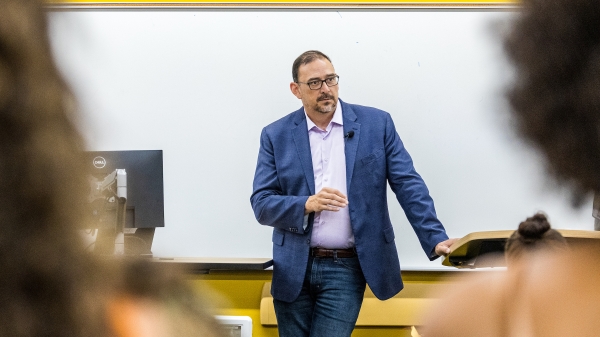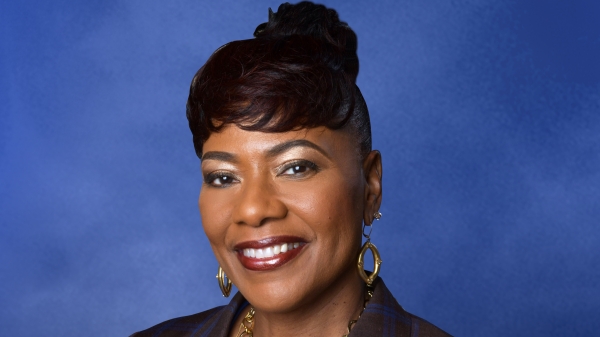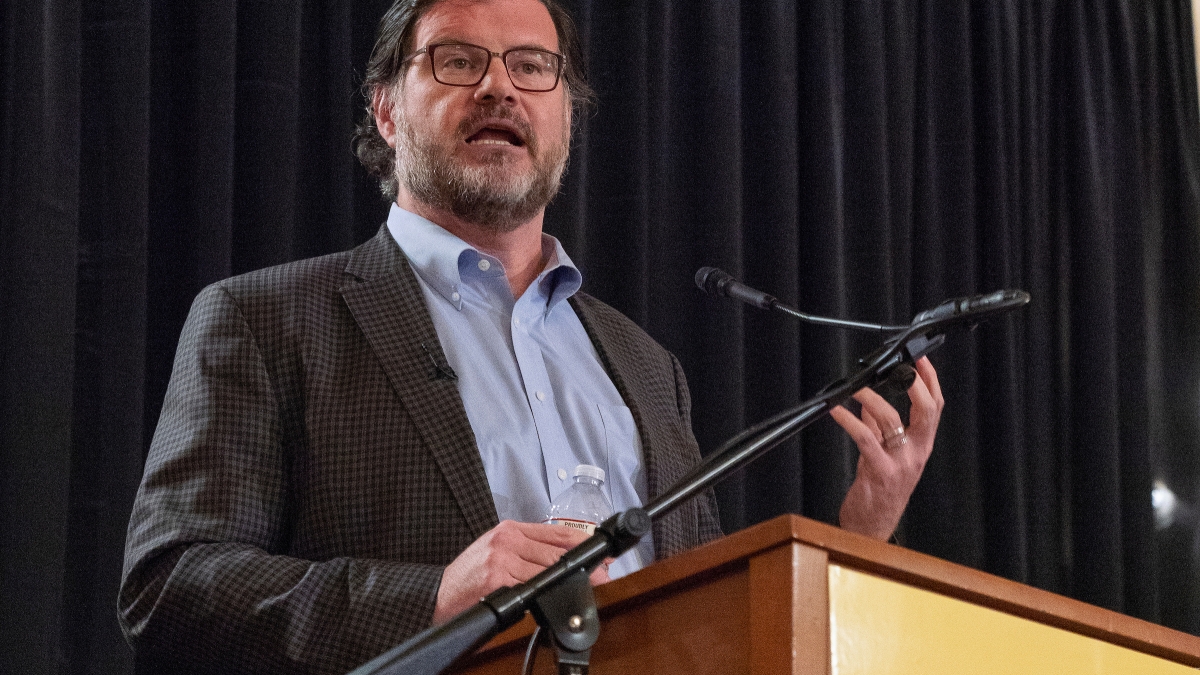American democracy is eroding quickly, and it’s not being threatened by an outside force or another country. We’re doing it to ourselves — “identity politics” and hyper-partisanship are killing independent opinion and the free exchange of ideas, according to prominent journalist and media figure Jonah Goldberg.
“The problem we have today is that we’re supposed to take people as they are, how you find them. Instead we are reverting back to a very natural tendency of turning people who look differently than us, act differently than us, into abstractions. We are demonizing,” said Goldberg, senior editor at National Review and a Fellow at the American Enterprise Institute, in front of a crowd of about 250 people at Old Main in Tempe on Tuesday. “This has been going on in the academic left for a long time and this breaks my heart, but conservatives, right-wingers, are embracing it, too.”
Video by Jamie Ell/ASU Now
Goldberg, also a nationally syndicated columnist and a columnist for the Los Angeles Times, was the inaugural speaker for the 2018-19 lecture series hosted by Arizona State University’s School of Civic and Economic Thought and LeadershipThe School of Civic and Economic Thought and Leadership is a new school at ASU that blends classical liberal arts education with experiential learning to prepare students to become leaders. Students confront diverse views on political, economic and moral philosophy; American political ideals; statesmanship and entrepreneurship.. Co-sponsored by the Walter Cronkite School of Journalism and Mass Communication and the Sandra Day O’Connor College of Law, this year’s theme is “Polarization and Civil Disagreement: Confronting America’s Civic Crisis.”
“The planning committee felt a duty ... to address one of the most contentious issues in higher education today: the hyper-polarization, extending to violence, about appropriate speech and invited speakers,” said Paul Carrese, director of the School of Civic and Economic Thought and Leadership. “We believe there is both intellectual and civic work to do in confronting this deterioration in higher education and in America’s capacity for self-governance.”
Carrese said selected speakers for this year’s series represent both ends of the political and social spectrum, hailing from academia and American public life and offering robust civil debate.
The majority of Goldberg’s Tuesday discourse stemmed from his new book, “Suicide of the West: How the Rebirth of Tribalism, Populism, Nationalism, and Identity Politics is Destroying American Democracy.”
Goldberg said that for 250,000 years, people existed on less than $3 a day. Only in the past 300 years has society reached a point where most people have been lifted out of mass poverty. He added that capitalism (which he called “The Miracle”) has produced an unbelievable “bounty of riches” and an “explosion of prosperity.”
However, he said, politics and divisiveness is threatening to turn it all upside down.
Goldberg said that lived experience, character and personality have been reduced to “thin abstractions” that flatten an otherwise dynamic populace and create tribes based on gender, race and party with little regard for diversity of opinion.
“What we need is variety. Let your flag fly free,” Goldberg said. “We have all of these arguments about going left toward socialism or right toward nationalism. But when you’re at the top of the mountain, left and right lose their meaning because the only direction you can go is down back into the muck.”
Goldberg said Americans are ungratefully throwing away what made the West the free and prosperous place it is today.
“We teach people not to be grateful for what we have,” Goldberg said. “If you don’t teach people gratitude, the opposite comes pouring in, which is a sense of entitlement and resentment. We teach people, ‘I gotta get mine.’”
Despite his diagnosis of civilization’s current ills, Goldberg did offer up some solutions and left the audience with this:
“There is no better system. There should be this understanding that we’ve got it pretty good," Goldberg said. "Have a little gratitude for where you are, because things could be a helluva lot worse."
The lecture series will continue on Oct. 11 with Mark Lilla’s presentation of “Identity and Citizenship.”
Top photo: Jonah Goldberg speaks on the "Suicide of the West" at an event hosted by ASU's School of Civic and Economic Thought and Leadership on Tuesday evening at Old Main on the Tempe campus. Photo by Marcus Chormicle/ASU Now
More Law, journalism and politics

ASU's Carnegie-Knight News21 project examines the state of American democracy
In the latest project of Carnegie-Knight News21, a national reporting initiative and fellowship headquartered at Arizona State University’s Walter Cronkite School of Journalism and Mass Communication…

Arizona secretary of state encourages students to vote
Arizona Secretary of State Adrian Fontes looked right and left, taking in the more than 100 students who gathered to hear him speak in room 103 of Wilson Hall.He then told the students in the Intro…

Peace advocate Bernice A. King to speak at ASU in October
Bernice A. King is committed to creating a more peaceful, just and humane world through nonviolent social change.“We cannot afford as normal the presence of injustice, inhumanity and violence,…
